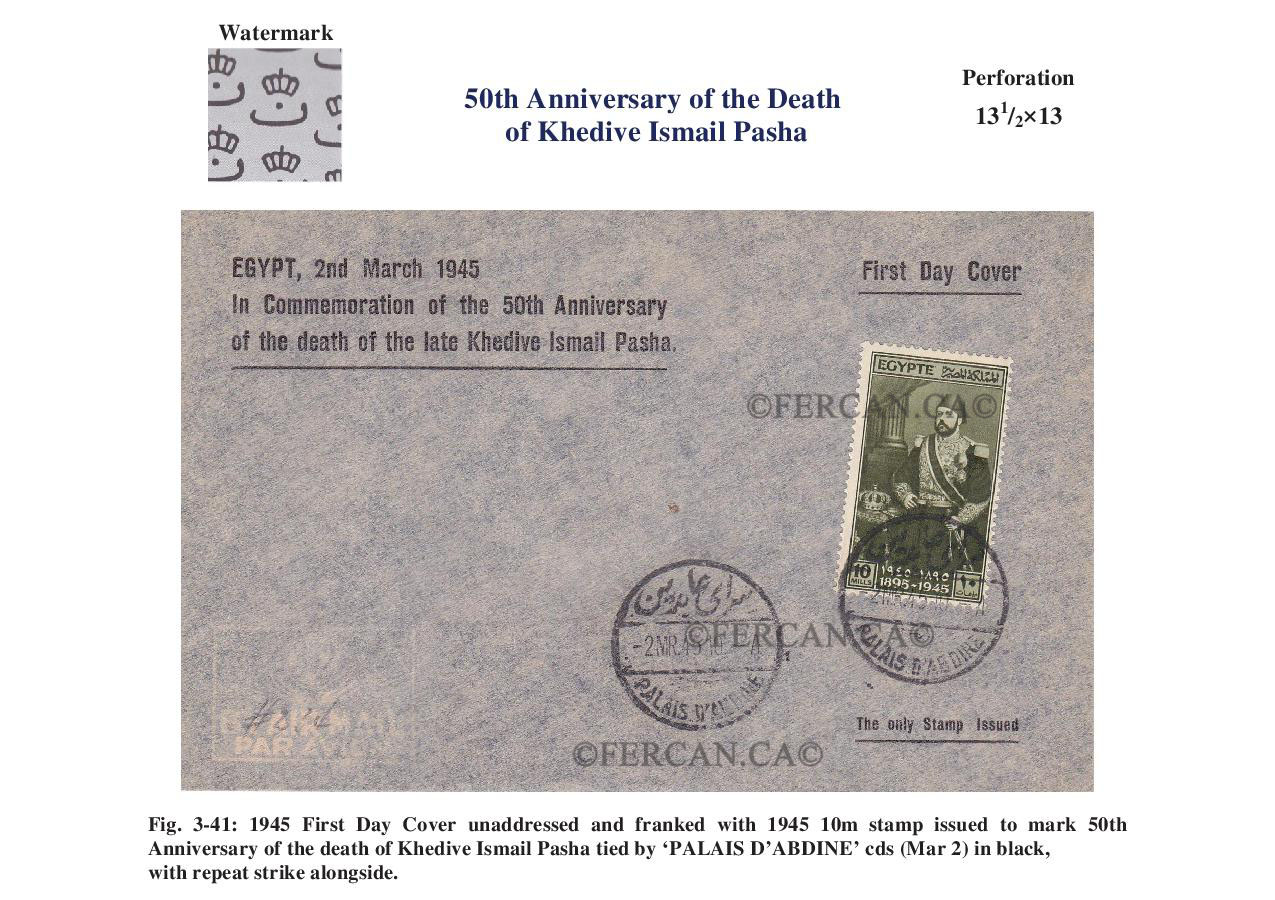Royal Printing: Two imperforate sheetlets were printed on watermarked paper.
2nd March 1945 - 50th Anniversary of the Death of Khedive Ismail Pasha
Photogravure by the Survey Department, Cairo. Usage valid until 1 April 1945
Khedive Ismail, the son of Ibrahim Pasha, the son of Muhammad Ali Pasha, was born in Cairo on 31st December 1830. He was the fifth ruler of Egypt from the Alawiyya dynasty. He received his education at the palace’s private school established by his grandfather to teach the dynasty children. He studied French, Turkish and some sciences of war, and then was sent by his grandfather to Paris to complete his education. There, he joined Saint-Cyr military school. In the wake of his elder brother’s death, he received the power without opposition. At the end of 1866, he was awarded the title of Khedive by the Ottoman Sultan.
Ismail was an ambitious governor. During his reign, he succeeded in changing the system of throne inheritance and decided not to enter into conflict with Europe but to cooperate with them in building his own modern country. During his reign, prices of Egyptian cotton went up. He completed the project of digging the Suez Canal, established 1085 miles of railways, built the city of Ismailia and the Opera House, worked on annexing the headwaters of the Nile as he expanded southward, and founded the Diwan of Schools.
Throughout his rule, about 4,817 schools were established. He also opened a school for the disabled (deaf, dumb and blind), established the first girls’ school in Egypt, re-issued Al-Waqa'i'a newspaper (the press flourished in his reign), and established the National Library. In addition, the agricultural lands increased; Egypt was however, by this time, heavily in debt due to the speedy expansion of infrastructure projects to support the country’s development plans. It ended up with Britain imposing full financial trusteeship on Egypt on 8th July 1879. By European and Ottoman collusion, Ismael was dethroned and lived in exile in Naples, Italy. He later moved to Turkey and resided in a palace on the Bosphorus until his death in 1895. He was buried at Al-Rifa'i Mosque in Cairo.

